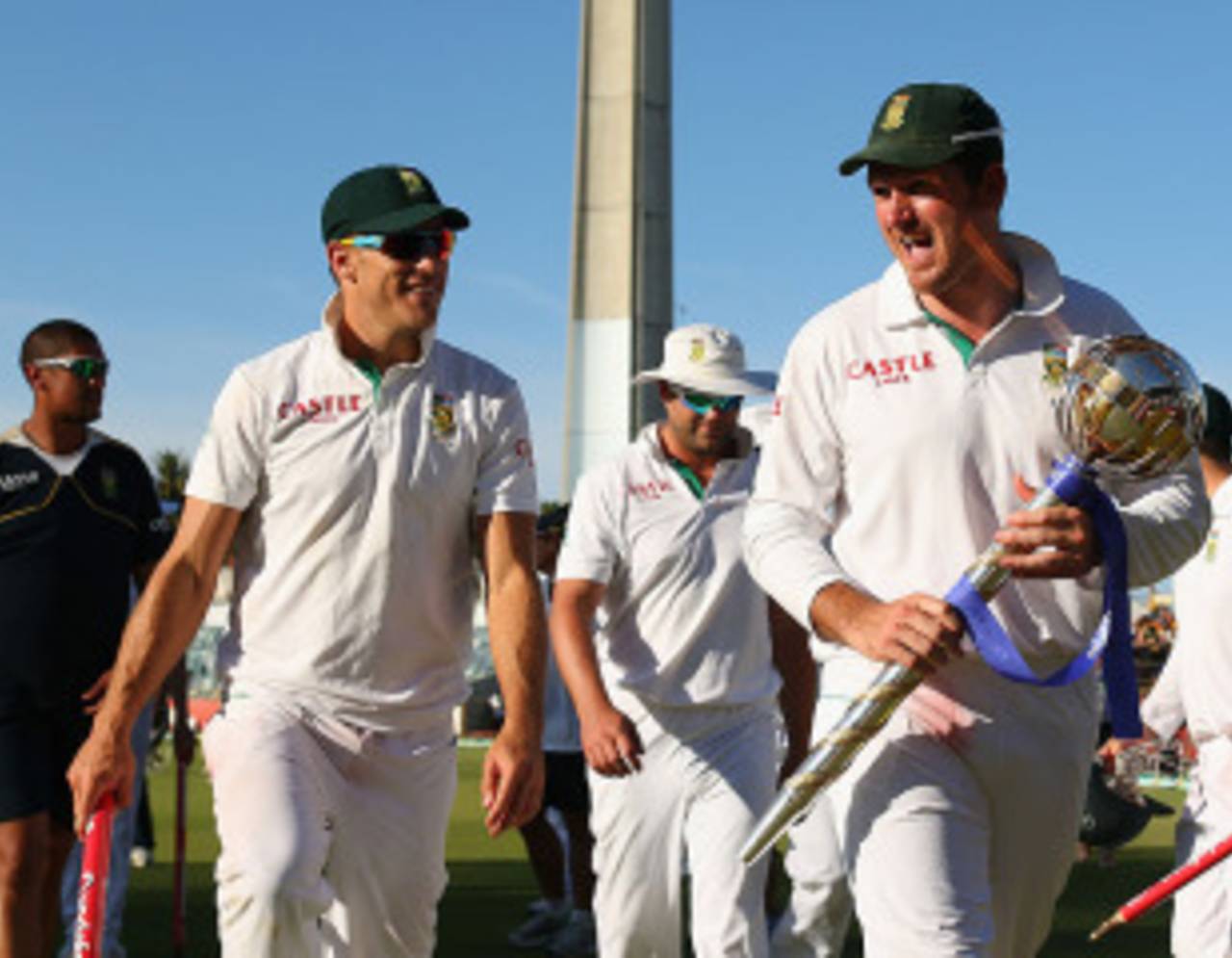The MCC's world cricket committee, an influential if powerless voice in the affairs of the game, has reiterated its support for the creation of a World Test Championship (WTC), even as it appears the ICC has resolved to go down an
alternative route. With broadcasters and commercial partners
reluctant to back the concept, the MCC has attempted to keep the idea alive by demanding that two teams contest a WTC 'final', at the very least, in 2017.
A planned first edition of the WTC, involving the top four teams in the ICC's Test rankings, was mooted for 2013 but had to be
shelved due to broadcast deals already in place for the Champions Trophy. The next gap in the cycle will be 2017 but problems with the proposed format - in the event of drawn or rain-affected matches - and in stirring sponsor and TV interest have undermined its viability.
However, the world cricket committee, which includes former players such as Rahul Dravid, Andrew Strauss, Steve Waugh and Shaun Pollock and chaired by former England captain Mike Brearley, has called on the ICC to end uncertainty about the WTC and confirm its implementation in some form, to help safeguard the future of Test cricket.
In a statement, the MCC said: "Since its creation in 2006, the WCC have stated that everything possible should be done to promote and protect Test cricket, which it believes is the ultimate form of the game. The committee understands the commercial sensitivities and logistical issues surrounding the proposed World Test Championship, but feels that a solution must be found.
"Whilst the committee would ultimately like to see the currently-proposed four-team knockout competition proceed, it believes that a scaled-down version involving the top two teams in either a one-off Test final or Test series would still provide a context that the longest form of the game currently lacks in comparison to ODI and T20 cricket."
The committee added that a championship involving just two teams was not ideal but "would be better than nothing". ESPNcricinfo understands, however, that the ICC is instead considering a two-tier system, with promotion and relegation.
Worries about the predominance of bilateral series between the major Test-playing nations, to the detriment of countries such as New Zealand, Bangladesh and Zimbabwe - currently ranked eighth, ninth and tenth - has in part fuelled the MCC's concerns, amid a desire to give the five-day game added context. Another issue raised at the cricket committee's latest biannual meeting, which took place on Monday and Tuesday in Abu Dhabi, was the need for the Future Tours Programme (FTP), which sets out ICC Members' commitments in advance, to be binding.
In recent times, several countries have made changes to planned series, often at the expense of Test cricket. Sri Lanka
postponed the Test leg of South Africa's tour in mid-2013, while West Indies and Sri Lanka agreed to
drop a Test series in favour of an ODI tri-tournament involving India. More recently, India
curtailed its tour of South Africa and inserted ad hoc series against West Indies - although this occasion resulted in additional Tests, including Sachin Tendulkar's final international appearance, being added to the schedule.
The cricket committee called such alterations "highly destabilising" and said that "certainty of match programming is essential for the proper administration of cricket amongst ICC members".
The MCC world cricket committee, of which membership is voluntary, was established in 2006 to provide an independent voice in the global game and regularly makes recommendations to the ICC. It has no remit to implement policy but has an unofficial position as one of the sport's guardians.
